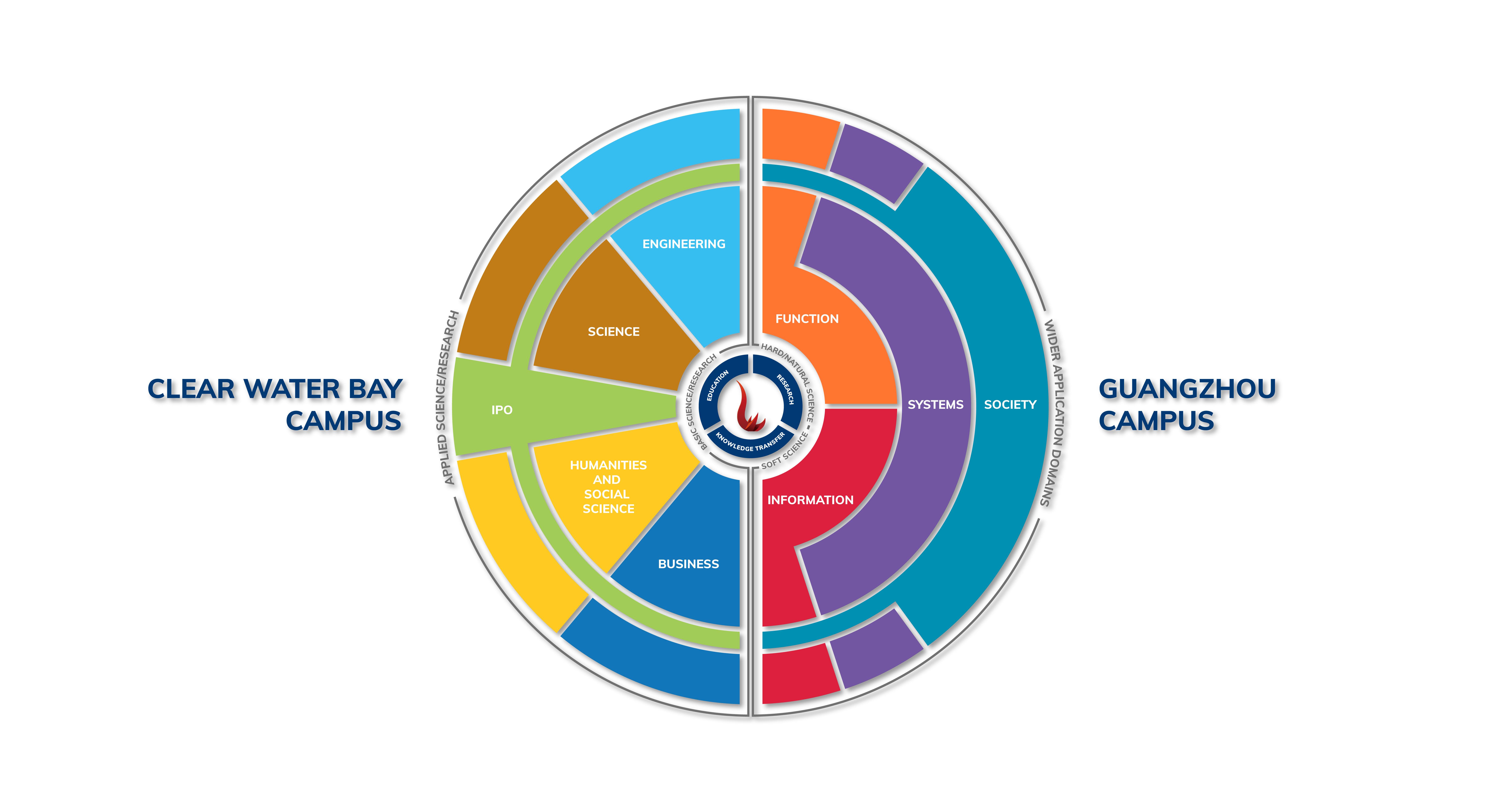AcademicS
We aim to empower our students the essential ability to create effective interventions for real world challenges of the 21st century
Academic Structure for Cross-disciplinary Education, Research and Knowledge Transfer
To align with the holistic and integrative approach, HKUST(GZ) adopts the unique Hub structure which facilitates Cross-disciplinary Education, Research and Knowledge Transfer in its Guangzhou campus. This unique academic structure at HKUST(GZ) is underpinned by the rich heritage of research excellence and hallmarked by cutting edge innovation built in the three decades at HKUST. HKUST in her beautiful Clearwater Bay campus has been delivering academic and research excellence with its four Schools (Science, Engineering, Business and Management, Humanities and Social Science) which comprise solid and well-established disciplines organized around well-defined subject areas, providing ideal environment to foster talents with deep insight inside segregated disciplines. With the mission of encouraging collaborative efforts among four Schools, the Interdisciplinary Programs Office (IPO) was established in 2008 to provide a platform without rigid boundary to support faculty at all levels to develop interdisciplinary education and research endeavors in emerging areas, with involvement of industries. IPO has played an important role for HKUST to address policy challenges in Hong Kong, the Greater Bay Area, East Asia and the world, such as sustainability and public policy. HKUST has also established five inter-disciplinary cluster areas in (1) Data Science, (2) Sustainability, (3) Autonomous Systems and Robotics, (4) Public Policy and (5) Design Thinking and Entrepreneurship.

Buttressed by the rigorous commitment to cross collaboration in academic disciplines in Clearwater Bay campus, HKUST(GZ) will advance the concept of an interdisciplinary platform to the next level. On the solid foundation built in the Schools/IPO, the Guangzhou campus comprises four Hubs that serve as nexus among disciplines. Under each Hub, there are a few Thrust Areas which represent the key emerging areas for directions and foci of research. These non-conventional Hubs of Function, Information, Systems, and Society and their Thrust Areas strive to cut across disciplinary and organizational boundaries, emphasize interaction and synergy, and create holistic knowledge beyond disciplines.
All research postgraduate students will be co-supervised by at least two supervisors from different disciplines. This mandatory requirement is to ensure the cross-disciplinary thinking in research topics. When the faculty strengths in the new campus are in place, one supervisor will be from HKUST(GZ), while the other supervisor may be from another Thrust Area in HKUST(GZ), or HKUST Clearwater Bay or from an external organization.
While Function and Information work together and provide the fundamentals to build Systems that supports Society, the Hubs are all interconnected to ultimately bring impact to the community. A cycle that facilitates recursive advancement is formed where the feedback from the community returns to Systems via Society and reaches Function and Information. These Hubs complement the four pillars of academic strengths established by the Schools in Clearwater Bay to show fast response to new problems and needs, thus making significant impact on the non-academic communities.